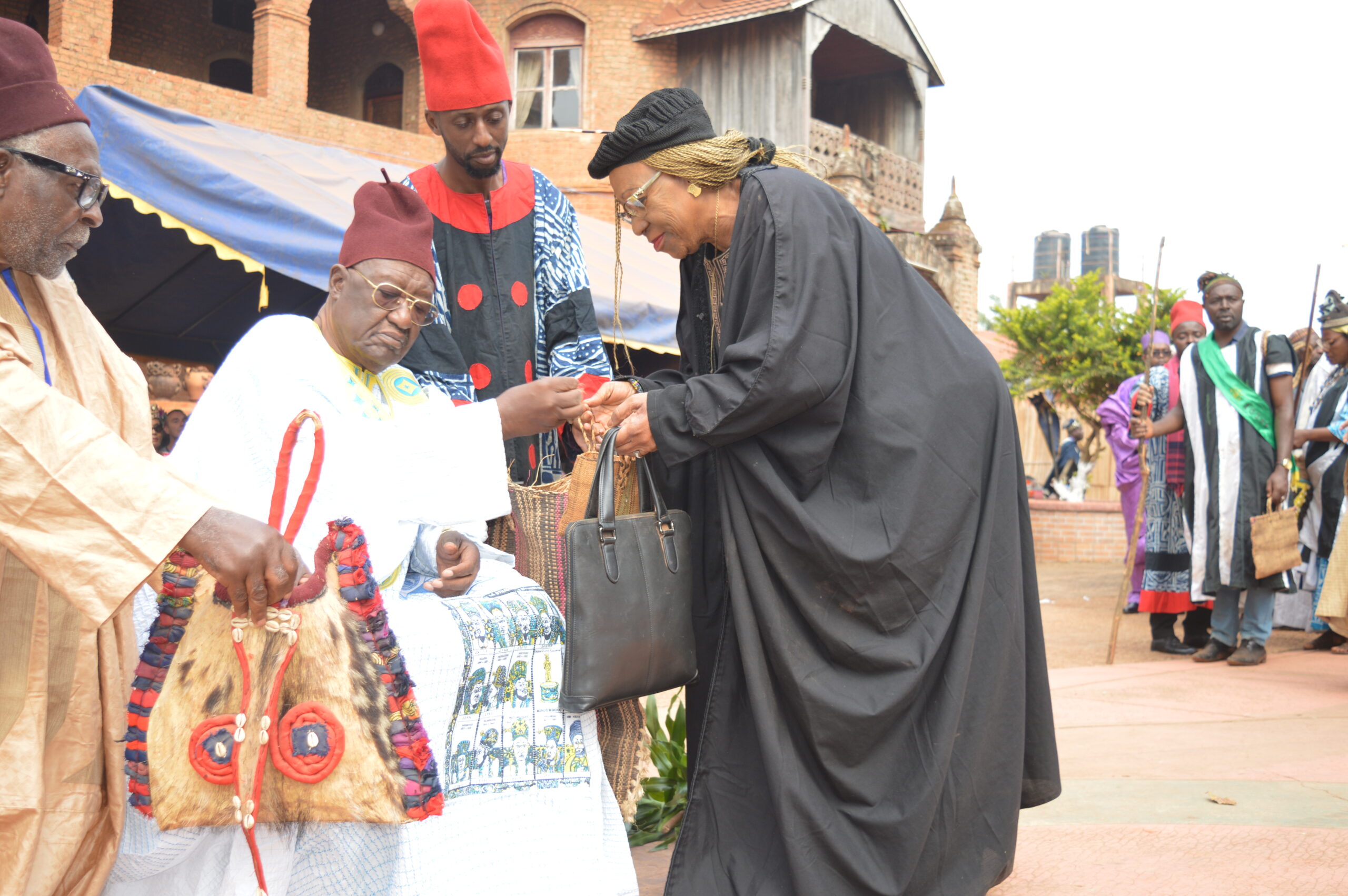The Nguon, Kingdom Governance Rituals

The Nguon is a set of rituals and associated expressions that ensure traditional virtuous governance in the Bamoun community.
The origins of Nguon date back to the end of the 14th century, at the founding of the Bamoun kingdom. The pioneer ruler Nshare-Yèn and the nascent community adopted this ritual, social and festive practice, which has been perpetuated and reinforced through the years by successive Bamoun monarchs.
The Nguon draws its sources from the interpretation of nature. Its symbol is the beetle, an insect of the Coleoptera race whose symphony of flight sounds inspired symbiotic values among the Bamoun ancestors. This metaphor was interpreted in the creation of a song, a dance and a sacred musical instrument maintained by a secret society, and rituals dedicated to harmony and sharing between men and groups.
On these foundations, the Nguon has been strengthened as a set of rituals and expressions that the Bamoun community, at the height of its development, has organized every year since 1395 and every two years since 1994, after an interruption during the colonial era. This celebration includes: the consultation of the population on the governance of the kingdom, the public judgment of the monarch (Mfon) based on complaints collected, the contribution of traditional medicines and agricultural products as offerings to the sovereign, and the popular convergence in a carnival-like march of unity. All of this surrounded by the exhibition of the cultural existing of the kingdom in its diversity (songs, dances, costumes and finery, art objects etc.).
Through these traditional activities involving units of a secret society dispersed across the kingdom, the Bamoun community ensures peace and stability through social, political, and economic regulation centered on the sacred power of the Mfon, a traditional governance of cohesion, sharing, and social justice.
The Nguon’s influence and the values it embodies have made it a significant component of Cameroon’s cultural diversity, listed in the national cultural heritage, whose assets determine the nomination files submitted for its inscription on the Representative List of the Intangible Cultural Heritage of Humanity.




